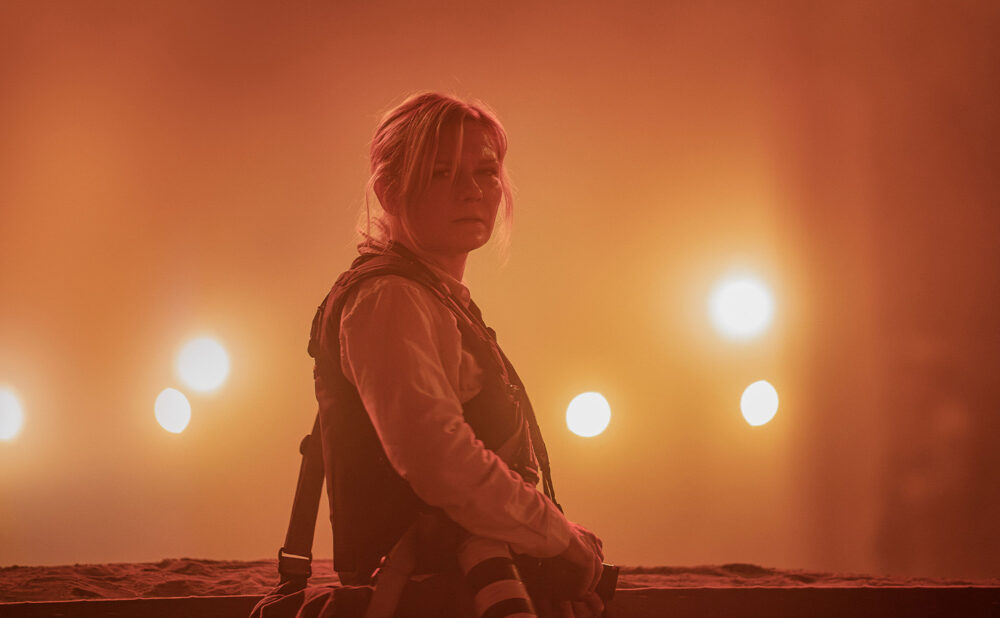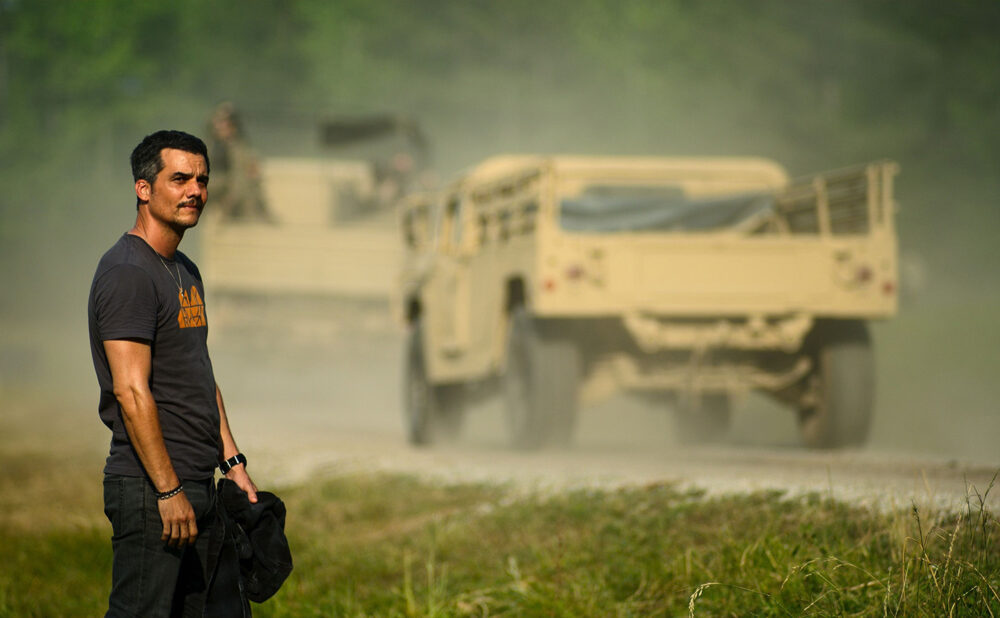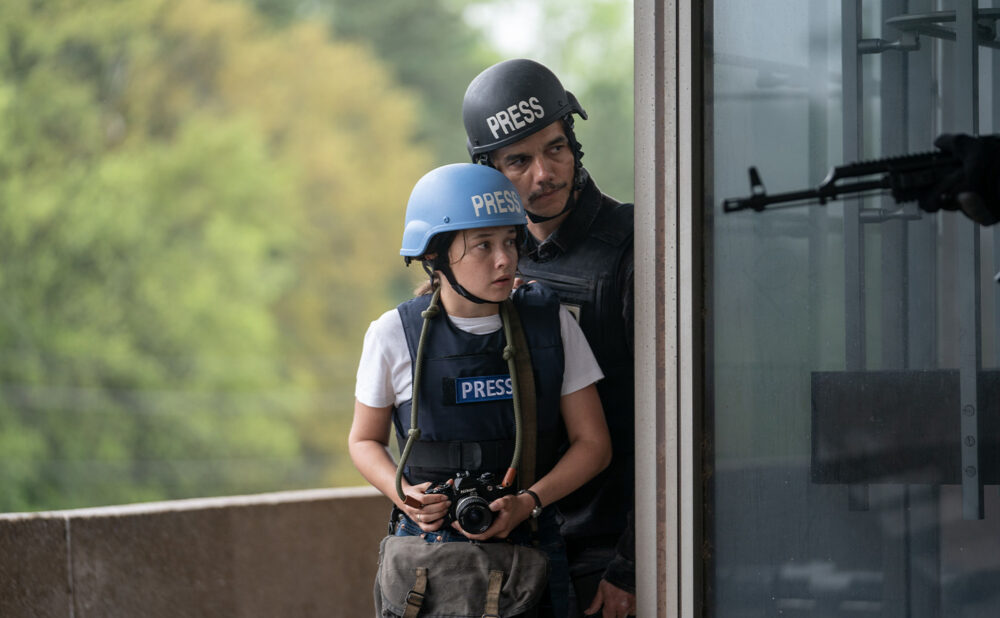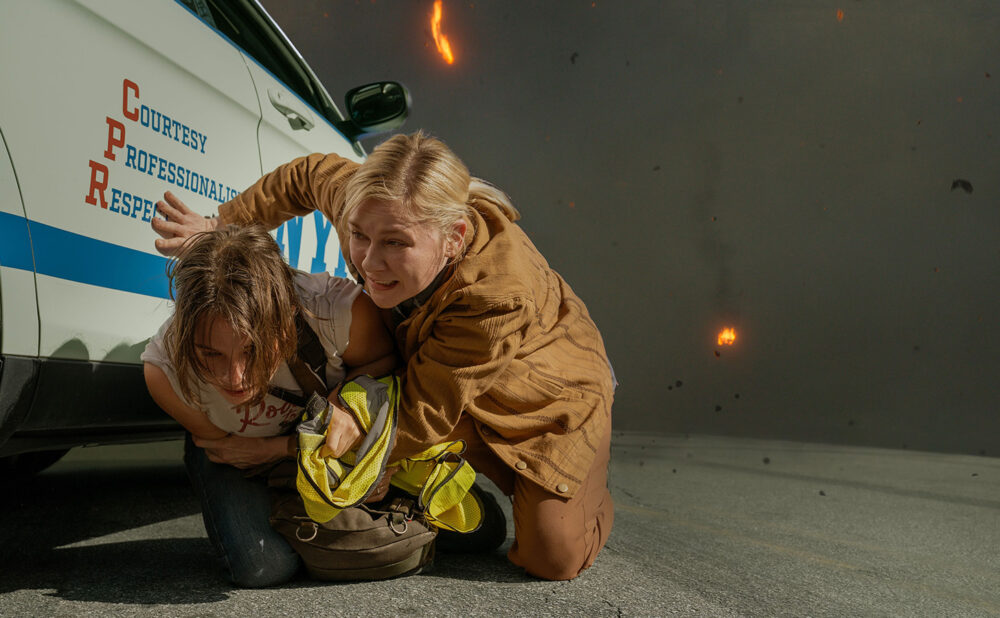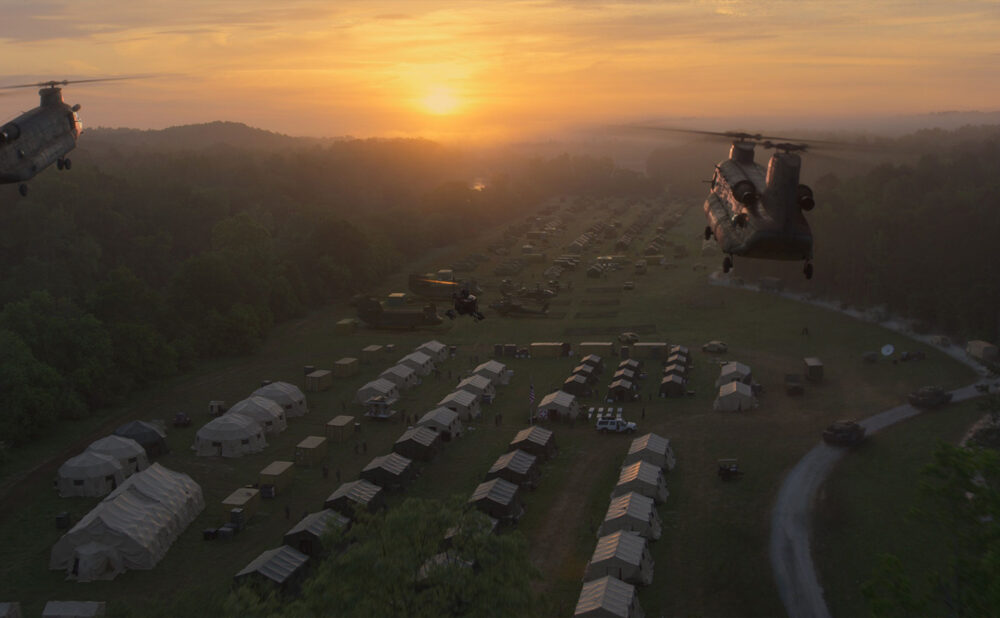Review: ‘Civil War’ a disturbingly believable look at American polarization
Many holes in story that leaves too much unexplained
Where: In theatres
What: Movie, 109 minutes.
When: Fri., April 12
Genre: Thriller
Rating: NNN (out of 5)
Why you should watch: Alex Garland’s dystopian vision of America is a compelling, effective but ultimately shallow look at the end of an empire.
YOU WOULD be forgiven if a description of the opening scene of Alex Garland’s Civil War sounded like a punchline: the United States is embroiled in a civil war, society has crumbled, and the president of the United States (played by Nick Offerman from Parks and Recreation) rehearses a speech while the rebel Western Front, an alliance between California and Texas, gradually moves on D.C. But Civil War is dead serious, like most of Garland’s work, which takes on the anxieties of the current moment — from A.I. (Ex Machina, 2014) to environmental collapse (Annihilation, 2018) to the patriarchy (Men, 2022) — with varying degrees of success. In his latest, Garland succeeds at making a thought-provoking film about an all-too-plausible future, but the problem is that he leaves most of the thinking up to the viewer.
The film follows a group of journalists as they travel from New York to Washington, D.C. in the hopes of interviewing and photographing the president before the rebel army gets the chance to assassinate him. The heart of the film is the uneasy relationship between hardened photojournalist Lee (Kirsten Dunst) and the eager novice Jesse (Cailee Spaeny), who idolizes war photographers. As they advance through the wasteland, the group encounters scenes of violence and depravity as most of the population has seemingly fled the area, leaving only the worst of humanity trolling gas stations and roadside attractions with semi-automatics. Garland’s vision of human nature, or simply American culture, is almost unrelentingly bleak. Even a scene that suggests there is solidarity left — when the group has stopped to rest at a demilitarized zone and a man reads stories to children by a bonfire — feels so tossed off and insincere that I almost laughed.
The film gives little explanation for why the country has devolved into lawlessness, except to tell us — in some very inelegant ways — that the president is a dangerous fascist (he’s in his third term, has disbanded the FBI and has ordered military attacks on civilians). This alone tells us that Offerman’s president is a version of Donald Trump since there is nothing Trumpian in his performance. If you were curious how two states that are so politically opposed (Texas and California) would become allies, well, the film is not going to explain it. But in an interview with the Hollywood Reporter, Garland makes an implicit connection between his film and America’s current political landscape, claiming the states agreed it was more important to take down a fascist president than hold their ideological ground. It’s disappointing that a film that depicts the fragility and hollowness of the American project is essentially just an argument for the moral imperative of voting for Joe Biden.
While Garland’s films have been heavy on style, from the coolly modernist interiors of Ex Machina to the lush biblical imagery of Men, Civil War feels unique in that its look is completely recognisable and without frills. It contains no technology or landscapes that aren’t familiar; there is nothing futuristic or surreal about it. In one sense, this is effective — the film feels quite immediate. But there is also something distinctly uncontemporary here: no one uses a cellphone and you only see images on a screen a handful of times. Even the focus on a group of journalists feels a little old-fashioned in an era when the images of current events are often captured by a bystander’s smartphone. There is a compelling imbalance to the film: we see Jessie and Lee take hundreds of photographs, but we never see the website on which they are posted or anyone else look at them — there are also two writers along with them, the adrenaline junkie Joel (Wagner Moura) and the elder-statesman Sammy (Stephen McKinley Henderson), but we never see them write a word. Essentially, we have no sense at all that the images taken or the words written at great risk to their lives are having an impact.
This sense of futility is brilliantly captured by Dunst as the shell-shocked Lee, who struggles with her unwilling mentorship role. Her emotional remoteness communicates an intense ambivalence about the importance of her profession. She gives Jessie tips on how to capture the best image while avoiding getting killed, but visions of the violence she has dispassionately captured haunt her. In her performance, we see that the one piece of advice she wants to give is the one she wishes she had heeded herself: quit before it’s too late.
The most intriguing moments of Civil War suggest that it is too late, not just for America but maybe also for humanity. Amidst all this man-made horror, the film occasionally pauses to admire the beauty of the natural world, suggesting that beyond the imminent collapse of society lies the renewal of nature. These are reminiscent of the brilliant Annihilation, in which verdant shots of flora are at once beautiful and sinister. As the group gets closer to the White House — the belly of the beast — and our senses are rattled from the nearly ceaseless gunfire, there is an increasing feeling that their efforts are meaningless, that they are there to capture the end of an era that was over long ago.

